Unmet Need
“Unmet need.” A phrase I was quickly made aware of in my early teens. A household buzzword. My mother, Dr. Laila Shah has been in the Reproductive Health (RH) field for more than two decades, and that may have something to do with it.
Unmet need for family planning is defined as the percentage of women of reproductive age, either married or in a union, who have an unmet need for family planning. Women with unmet need are those who want to stop or delay childbearing, but are not using any method of contraception. According to the World Health Organization, the concept of unmet need points to the gap between women’s reproductive intentions and their contraceptive behavior.
According to Pakistan Demographic and Health Survey 2012-13, the prevalence of unmet need for family planning is 21 percent in the country. The unmet need exists at both service delivery and policy level. Poverty, lack of education, access to basic health care, cultural and religious barriers cause these gaps. What makes matters worse is women’s lack of decision making in birth spacing and family planning. Pakistan is predominantly a patriarchal society — mostly the husband, along with the mother-in-law, gets to decide how many children his wife has. The literacy rate being low adds to this problem, particularly female literacy rate is 45 percent against male literacy rate that is 69 percent.
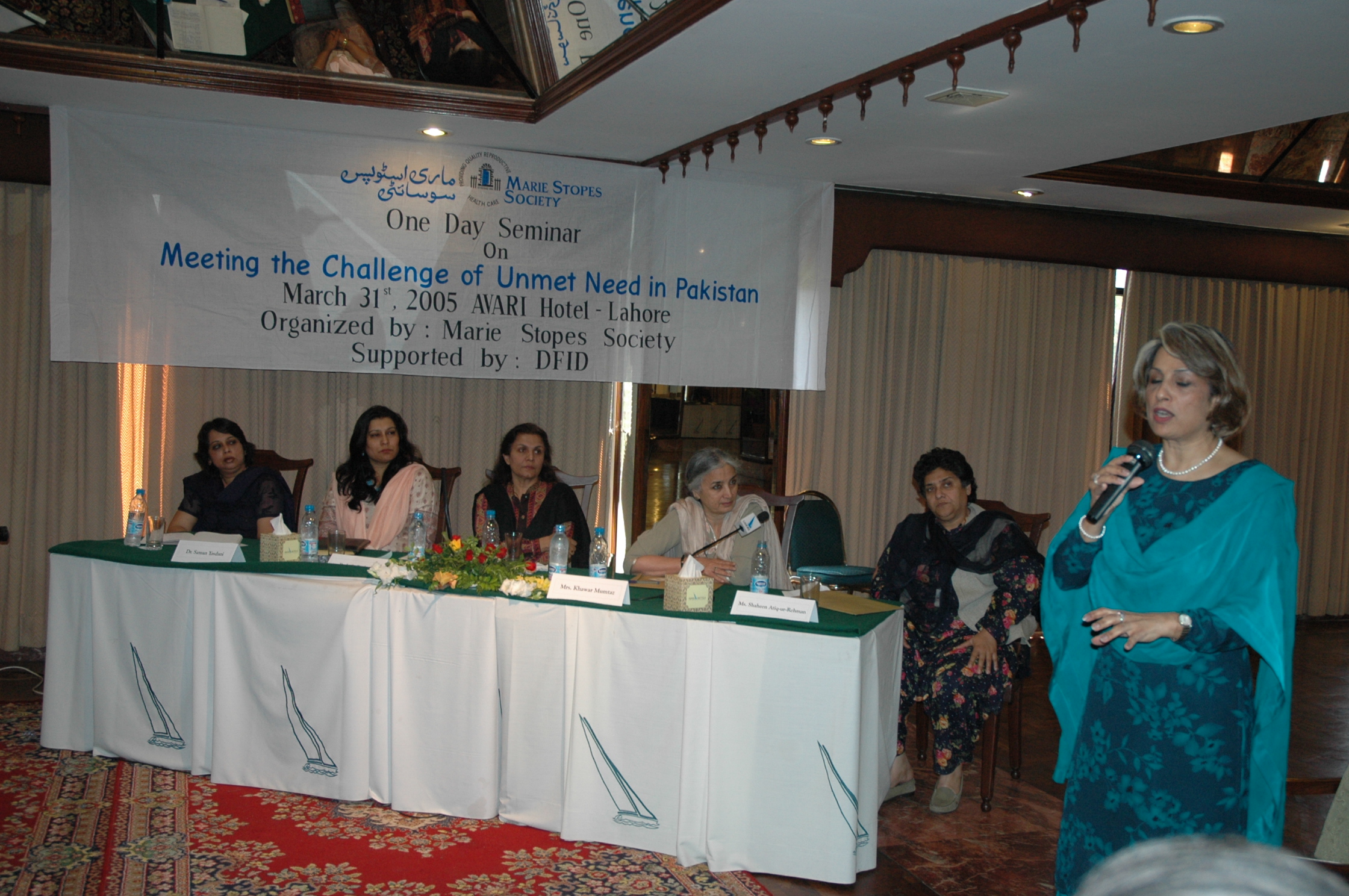
Dr. Mohsina Bilgrami: Diminishing the Unmet Need
During my trip to Pakistan in December 2019, I had the opportunity to reconnect with Dr. Mohsina Bilgrami.
For those who don’t know, Dr. Mohsina is a public health professional with 30 years of experience in leading reproductive health and service delivery program design and management. She is renowned for designing and implementing innovative health service delivery channels successfully. She was the regional director of West Asia at Marie Stopes International (MSI) until spring of this year when she retired. There, she managed a group of countries that experienced a variety of challenges and perspectives, including security challenges in Afghanistan and Pakistan. She now serves as the board member of MSI and many of MSI’s country programs, including the MSI’s program in Pakistan. Marie Stopes International works in 37 countries around the world to help women and girls to have children by choice, not chance.
I was so inspired by her and my mom’s passion for reproductive rights that I first interned at Marie Stopes Society as a fresh graduate and later worked there again as a research consultant. Dr. Mohsina has this aura about her. It’s in her stature, her walk, her talk, her salt and pepper hair, her iconic red lipstick. When she talked, people listened. She made her presence felt. She carried herself off with such flair and grace. Beauty and brains this woman! I’m in awe of women daring to work in a pro-choice organization in Pakistan. I spoke with Dr. Mohsina about the on-the-ground realities of women in Pakistan, the barriers, challenges and struggles they face.
How is family planning making a difference in changing behaviors and perceptions?
What I really like about what I do is that when you sit with a woman and talk to them about their issues, you are empowering a woman. At times they get surprised, and say “you want to talk about me?” It feels good to say that I made that happen. It empowers me to empower women. That’s why doing community medicine in my post-graduation was so gratifying. By empowering women, you are essentially changing their mindsets and behavior. Even if they have a pill for a month, you are empowering them for that one month.
How did the opportunity at Marie Stopes arise?
When I was working in Aga Khan University, Karachi, the two years there were tough as I was juggling family with work. It was during this period when an MSI representative met me and said his organization, a pro-choice organization, was looking for somebody to run their RH program for the first time in Pakistan. I was invited to visit MSI headquarters in London and there I met Tim Black, who is the pioneer in setting up MSI in the UK and also DKT International in the US with Phil Harvey. His personality was larger than life and his philosophy was to make programs sustainable. I agreed to join MSI in June 1991. All I was given was a four-page proposal to set up a clinic in Karachi!
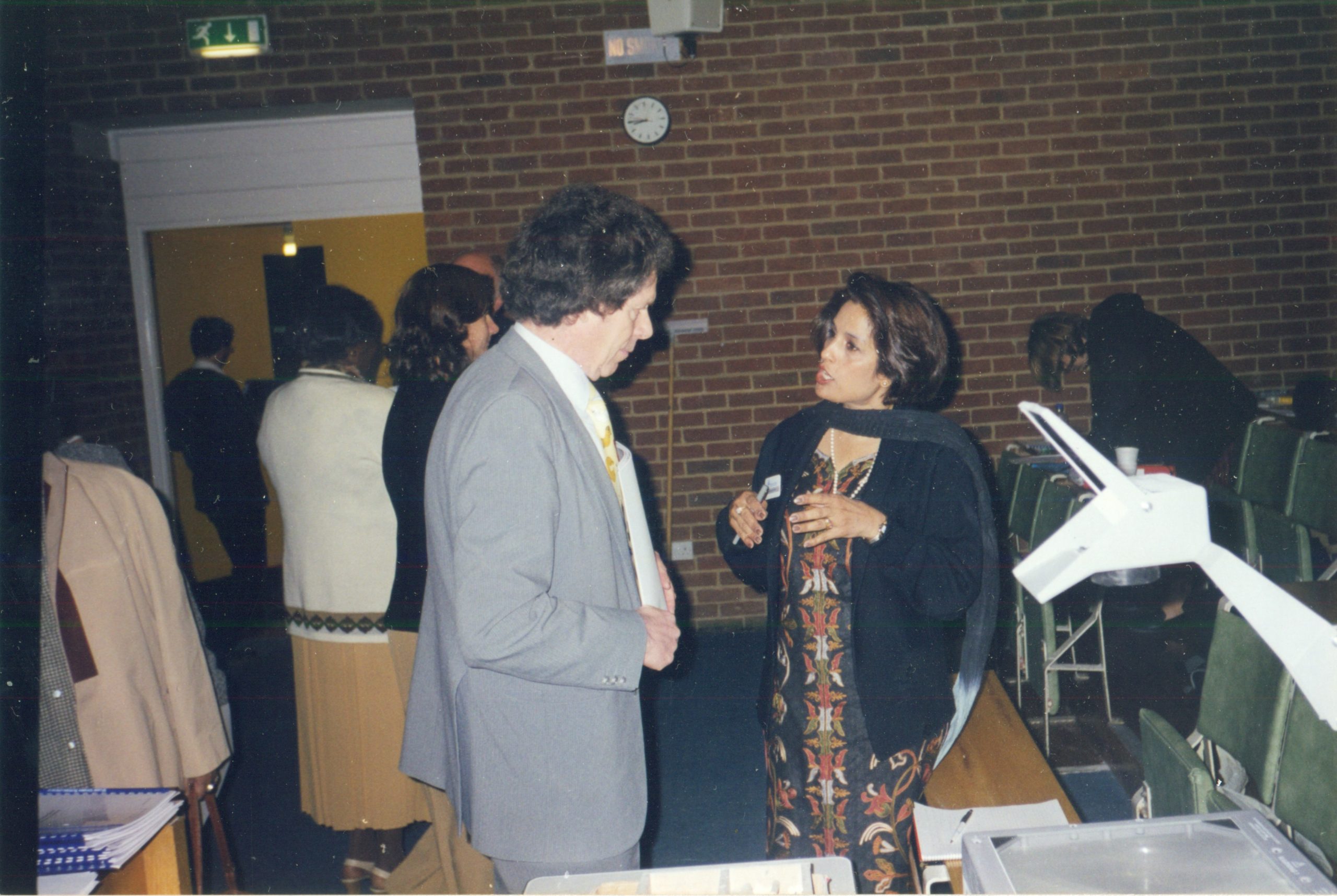
We had humble beginnings; we started the program in a small room in my house. We built the MSI organization from scratch – the documents, guidelines, procedures, a business model, quality indicators, and standard policy all were developed and rolled out internally. We created a small blue book which was like our “work bible.” This guided us on how and who to provide services. MSI used that model and adopted it. Soon the operations were expanded within Karachi and we spread our wings to other provinces of Sindh, Punjab, KPK and Baluchistan. Some areas were highly conservative, so we had to enter them through local jirgas (tribal council).
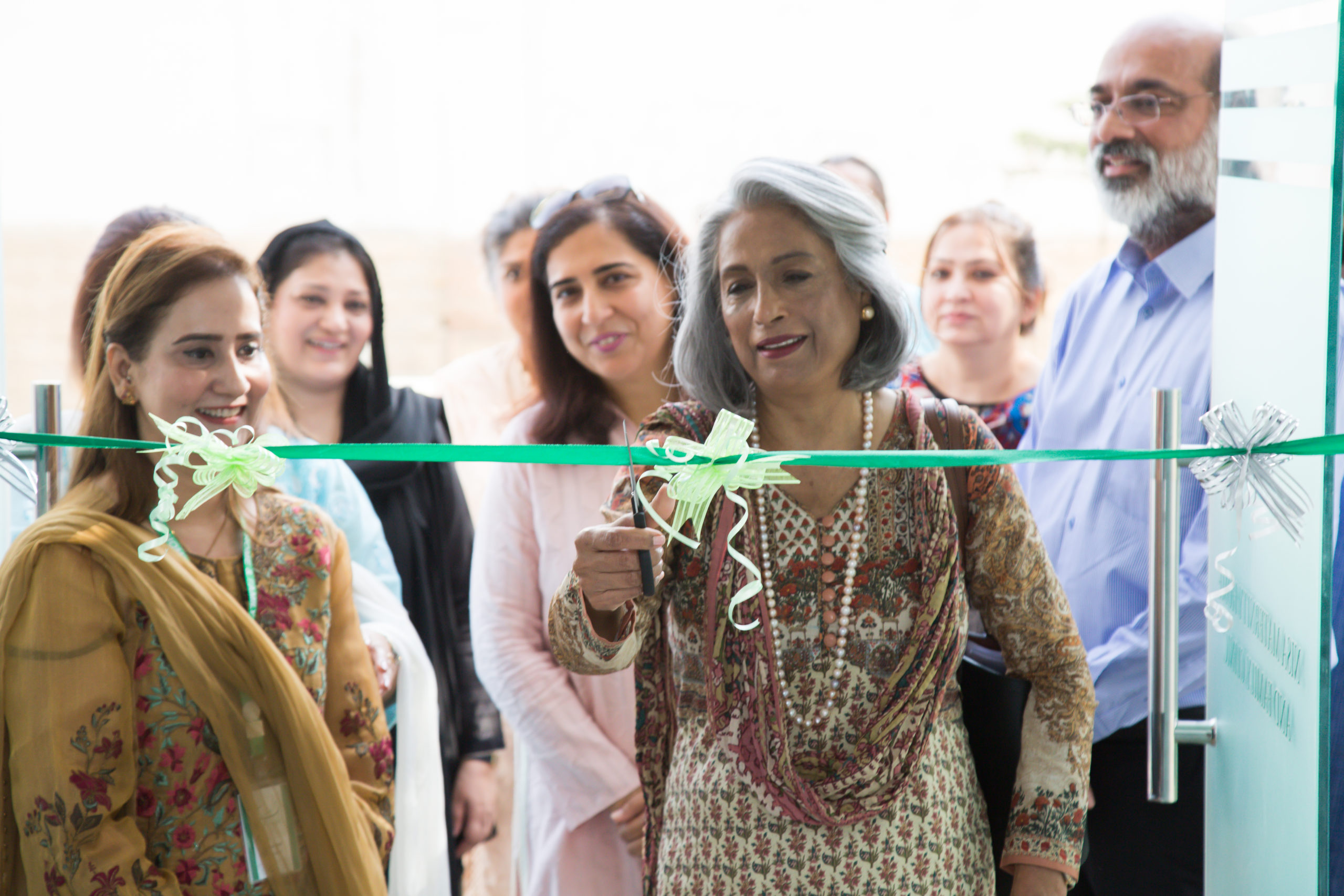
What were the challenges?
The biggest challenge was to find teams that were ready to provide Family Planning services back in the early 90’s. There were many biases, and Family Planning was still not accepted as something that people talked about easily or adopted. The standard response by most service providers was that either their fathers or husbands or brothers won’t allow them to do this line of work. We then started to train nurses and young doctors in services. It took a long time to have a trained team who were ready to provide services.
What inspired you to get into the field of reproductive health care?
I grew up in a family of doctors. My grandfather’s clinic was attached to his house. As kids when we visited him, we played a game called “doctor, doctor.” So, from my early years I was influenced by him and wanted to be a doctor.
When I graduated with a medical degree, my aim was to help the community on a volunteer-basis. Women I met generally complained, “the biggest problem I have is that I have too many children, I don’t want that many children.” I was frustrated, I didn’t know how to help them. I had to self-educate. Family Planning Association (FPAP) was the only organization at that time who were providing these services. I learned all about Family Planning and how to do these services. I still remember this woman who came to me, thanking me, saying, “I have had children every year and for the last two years I was able to prevent another pregnancy thanks to you – you have saved my life, although there was opposition in the family but I am so happy.” We also did couples counseling as women insisted that their husbands do not approve of contraception use, but having them both together was really successful and we encouraged them to bring their husbands to these sessions.
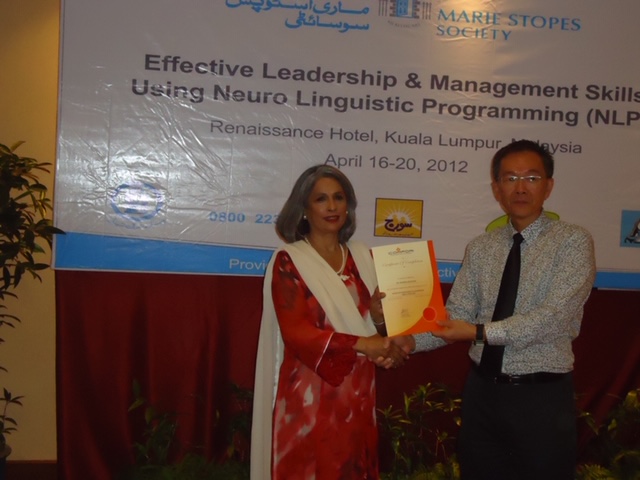
How has reproductive health care evolved over the years?
The journey of reproductive health care that was in place in the last 30 years is now changing. Women did not have access to knowledge and services back then. The need of permanent methods is reducing; people have access to self-care and reversible methods. There has been a knowledge revolution. However, there is still a huge unmet need for contraception, safe abortion practices and post-abortion care.
How did you convince the communities in the tribal councils (jirgas) to practice family planning methods?
People trust doctors. They have a higher credibility. We told them we are doctors and here to help them with their quality of life and well-being. MSS started a general medical women’s center where we educated them about why birth spacing is important. We quoted religious sayings, and gave The Prophet’s example that he also encouraged birth spacing. We also rationalized it by telling them when a woman’s health is better, the child’s health is better.
By supporting their general needs like antenatal care, child health care, advice on healthy living and disease prevention helped us gain their trust. When we were traveling to remote areas, we dressed like the local women. I remember when once at the airport we were wearing traditional Balochi dress while traveling to Turbat and Gawader. We got quite a few interesting looks!
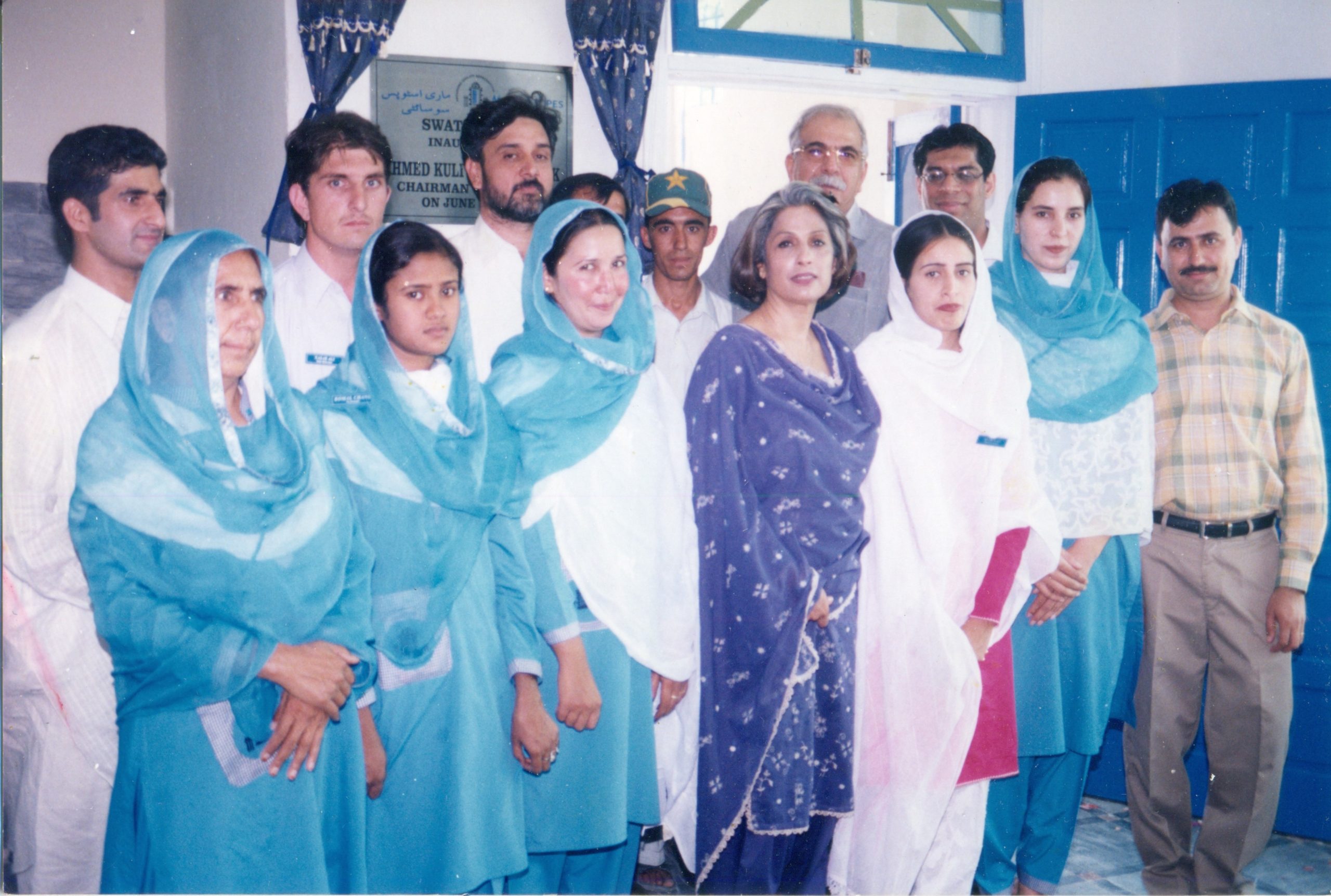
Any stereotypes these tribunal communities debunked?
The most interesting community is that of Balochis. I attended a wedding of a Balochi staff member. Unlike normal tradition, the girl doesn’t move to the boy’s house after marriage. Also, he is the one who gives dowry instead. We were impressed to see that even though they are highly conservative in their ways, they still gave women a lot of respect. Women control the decision and money. Unfortunately, due to cultural reservation many women don’t see male doctors, resulting in deaths in the community. For obstetric labor there are no female doctors available in the area. There was one male doctor who the women didn’t want to see.
In your down time, what hobbies do you enjoy? Any favorite movies?
My favorite movies are To Kill a Mocking Bird, The Butler, and Gone with a Wind, as well as old ‘40s movies. I love swimming, walking and recently took to baking and cooking. Also, I love traveling and will be ready in a few minutes if asked to take a flight to anywhere in the world!
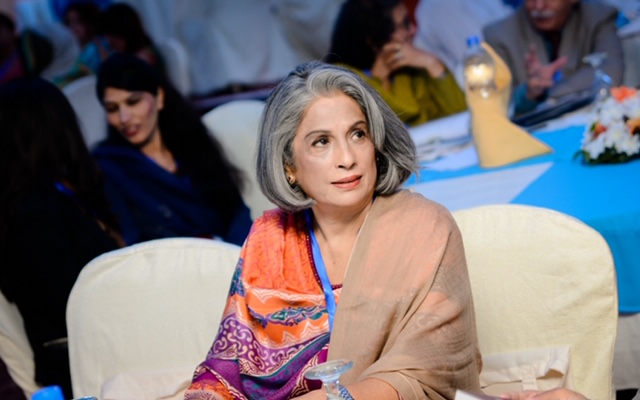
Author’s concluding note: Unless you empower women, this unmet need will continue to exist. I recently read the book ‘Moment of Lift’ by Melinda Gates. It talks about how gender equity and fostering inclusion of women uplifts society as a whole since women form the backbone of any community. Educating them is key.
“On this World Population Day, let us act to safeguard sexual and reproductive health care, protect the health and rights of women and girls”, said United Nations Secretary-General António Guterre. “The pandemic has made our jobs much harder, but we must prevail”. The United Nations estimates the world population will hit 8.5 billion in 10 years. Powerhouses like Dr. Mohsina are playing a pivotal role in decreasing these numbers. The world needs more Mohsinas.
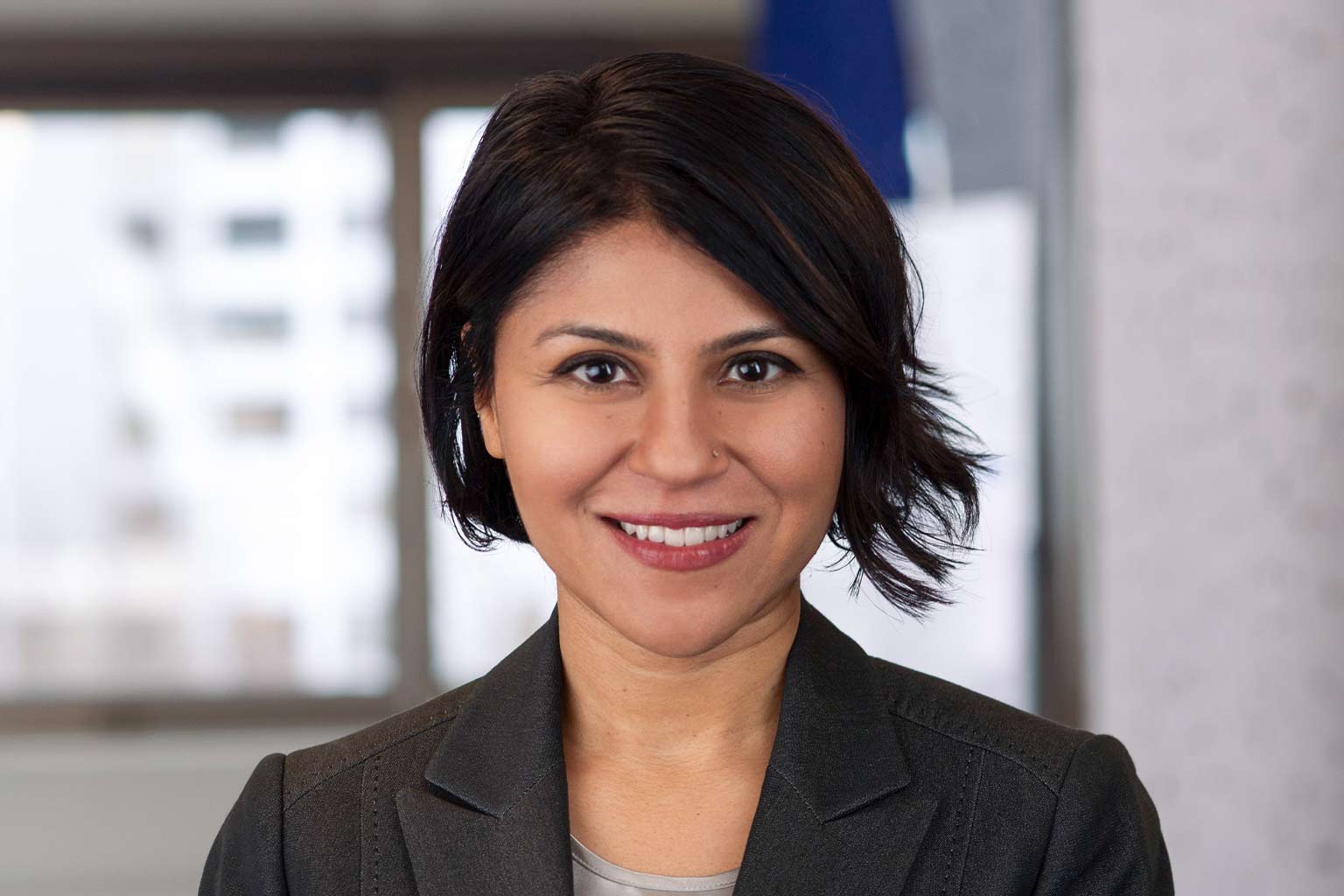
Maheen Mustafa is the founder of Maheen The Globe (MTG) a Seattle-based global media outlet and independent production house covering global stories and perspectives. She covers beats social impact, wellness, education, culture, climate and race. Her email is [email protected], and Twitter handle @MaheenM_.
